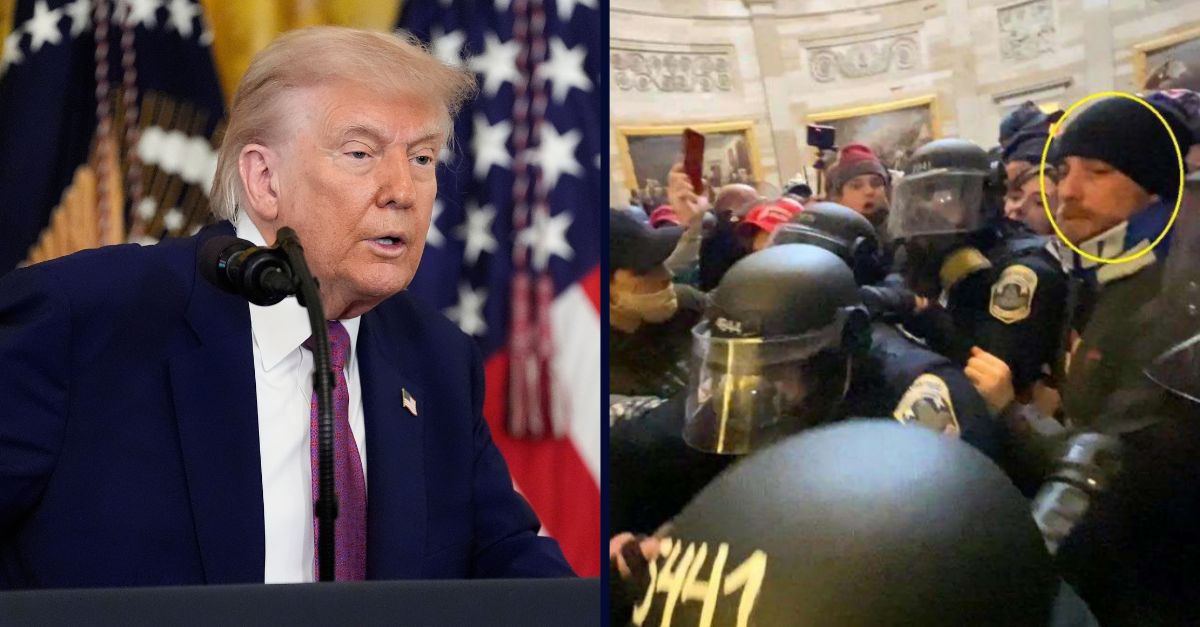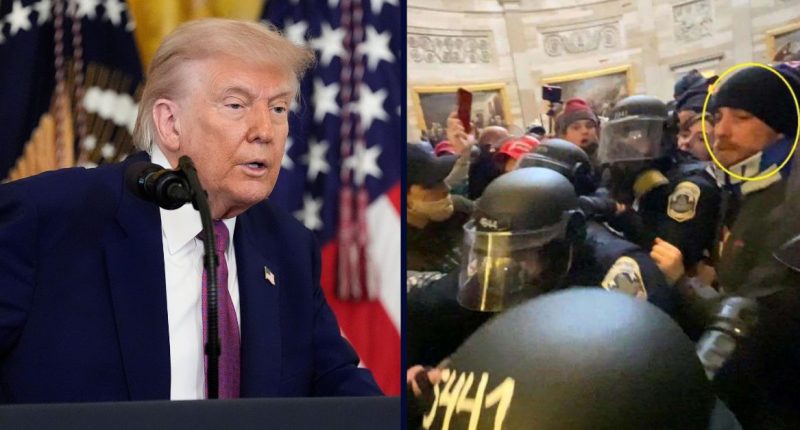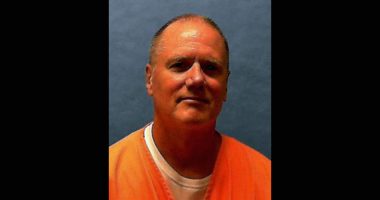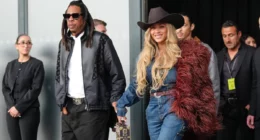
Left: President Donald Trump speaks after signing a bill blocking California”s rule banning the sale of new gas-powered cars by 2035, in the East Room of the White House, Thursday, June 12, 2025, in Washington (AP Photo/Alex Brandon). Right: Kyle Colton in the U.S. Capitol on Jan. 6, 2021 (U.S. Department of Justice).
The Trump administration will not support a onetime Jan. 6 defendant’s bid to apply President Donald Trump’s mass pardon to a somewhat-related but distinct child pornography case.
Earlier this month, Kyle Travis Colton, 38, filed a motion to dismiss – arguing the investigation that led to his child pornography charge was inextricably tied up in the Jan. 6 case against him.
In a six-page opposition motion, the U.S. Department of Justice on Friday made pains to differentiate Colton’s conduct in his California case from his actions during the pro-Trump riot in Washington, D.C., calling him a “prolific collector” of child pornography.
“Defendant’s pardon for offenses related to events that occurred at or near the U.S. Capitol on January 6, 2021, does not cover his charge of receiving child pornography,” the opposition motion reads. “As such, this Court should deny Defendant’s Motion to Dismiss.”
Love true crime? Sign up for our newsletter, The Law&Crime Docket, to get the latest real-life crime stories delivered right to your inbox.
Colton was initially arrested in December 2023 and charged with five counts in a 15-page criminal complaint and statement of facts after he allegedly told passengers on a flight from Washington, D.C., to Los Angeles “that he was part of the ‘second wave’ of rioters.”
Then, in February 2024, Colton was charged in a four-page sealed indictment with one count of receipt of child pornography for allegedly receiving “one or more visual depictions” within interstate commerce “where the production of such visual depiction involved the use of a minor engaged in sexually explicit conduct.”
In October 2024, Colton pleaded guilty to one count of disorderly and disruptive conduct in a restricted building or grounds. He faced a maximum sentence of one year in prison and a $100,000 fine.
Gone were initial charges of obstruction of law enforcement during civil disorder, knowingly entering or remaining in any restricted building or grounds without lawful authority, disorderly conduct on Capitol grounds, and parading, demonstrating, or picketing in a Capitol building – replaced by a 1-count information in September 2024.
The defense and the prosecution submitted dueling sentencing memos in early January; Colton’s sentencing hearing was, somewhat fortuitously, slated for Jan. 21. The day before that, of course, the 45th and 47th president issued blanket pardons to all Jan. 6 defendants.
Later that same day, U.S. District Judge Randolph D. Moss, sitting in Washington, D.C., signed off on the government’s motion to dismiss.
Meanwhile, and as noted in the 12-page plea agreement, the child pornography charge lingered in the Eastern District of California.
The Trump pardon purports to cover “offenses related to events that occurred at or near the United States Capitol,” the defendant’s attorneys note in a two-page motion to dismiss based on the pardon, Law&Crime previously reported. This means the laptop computer cited in the child pornography indictment cannot be relied upon because it was recovered during the investigation into Colton’s Jan. 6-related actions, according to Colton’s attorneys.
The DOJ rubbished that line of thought with an argument about the span of time – arguing Colton obtained child sexual abuse material (CSAM) both well before and well after the events of Jan. 6.
“Evidence from this investigation shows that Defendant downloaded, searched for, and/or possessed CSAM dating back to as early as 2010,” the opposition motion reads. “Defendant engaged in this activity while he was working abroad as a teacher in China. He continued to engage in this activity up to at least December 2023.”
The government’s argument goes on like this, at length:
Defendant has been charged in the instant case with knowingly receiving child pornography in the Eastern District of California, beginning at a date no later than on or about July 2, 2022, and continuing through on or about December 14, 2023. That receipt substantially postdates the events at the Capitol on January 6, 2021, and has no significant connection to those events. As such, the instant receipt of child pornography charge is not an offense “related to events” at the Capitol on January 6 and is not covered by the pardon. Although the offense was initially discovered by law enforcement when searching an electronic device seized pursuant to a search warrant in the January 6 investigation, the charged conduct in the instant case covers a much broader period, i.e., on or about July 2, 2022, through on or about December 14, 2023. Furthermore, evidence gathered in the independent investigation into Defendant’s child exploitation offenses shows that Defendant was downloading, searching for, and/or possessing CSAM dating back to as early as 2010.
To bolster his case, Colton’s attorneys have drawn attention to the fact the DOJ has, at least in some other instances, taken similar positions.
“Subsequent to January 20, 2025, the Department of Justice has taken the position that indictments which are based only on evidence that was discovered pursuant to a search warrant for January 6th evidence are ‘related to events that occurred on or near the United States Capitol on January 6, 2021,'” the motion to dismiss reads.
But that record is mixed.
On June 7, a federal judge in Baltimore applied Trump’s pardon to man’s gun charge that stemmed from the Jan. 6 investigations.
Yet, on the very same day, another judge in Tennessee did the exact opposite — denying a man’s request to dismiss a firearms case by finding it “entirely unrelated” to Jan. 6.
In the opposition motion, the DOJ argues one – gun-related – case where the government did not oppose expanding the pardon’s reach is different, in various ways, from Colton’s case.
“The government noted that, where the basis of a conviction is a firearm recovered pursuant to a residential search warrant based on conduct related to January 6, the Presidential Pardon includes the resulting firearm conviction,” the motion goes on. “However, that is not analogous to the instant case, which involves a prolonged period of child exploitation and a continuous period of interaction with outsiders, long before and after January 6, 2021, to obtain child pornography.”
The DOJ goes on to note that, in the gun case, “law enforcement was specifically looking for items like weapons, including firearms.” This, the government says, brings those charges within the ambit of the pardon.
“By contrast, the initial warrant did not authorize—and law enforcement were not seeking—evidence related to the sexual exploitation of children,” the opposition motion continues. “Rather, in Defendant’s case, law enforcement observed indicia of child exploitation in plain view while executing the January 6 warrant and obtained an additional warrant, ultimately resulting in the separate CSAM investigation and instant indictment. This again illustrates how attenuated the charged conduct in the instant case is from the ‘events that occurred at or near the United States Capitol on January 6, 2021,’ notwithstanding the fact that Defendant’s computer was initially seized as a result of the investigation for his January 6-related conduct.”
The government’s filing also makes an argument about the merits of the contrasting cases – in something not entirely unlike a malum in se vs. malum prohibitum discussion. But, again, the alleged timeline of Colton’s child pornography-related behavior is key, the DOJ says.
“[U]nlike a firearm-possession offense, Defendant’s child exploitation offense involved human victims whose abuse was recorded and then shared online between Defendant and other sexual abusers,” the opposition motion goes on. “Many of the CSAM images in Defendant’s possession involved abuse that occurred long before January 6, 2021. Defendant effectively re-victimized these same children at least between 2010 and 2023.”








